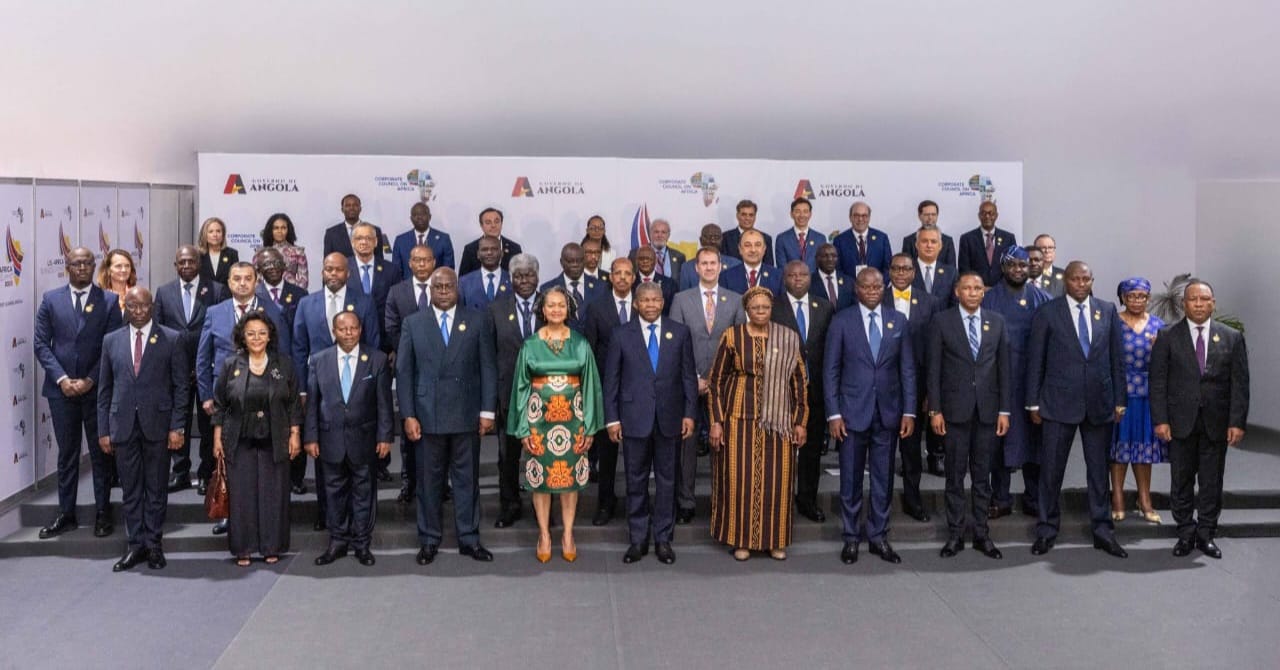
Against a backdrop of tariffs and travel bans, the 2025 US-Africa Business Summit in Luanda, Angola, shared some home truths.
The atmosphere at the 2025 US-Africa Business Summit that was recently concluded in Luanda, Angola was far from what American delegates expected. Instead of handshakes and optimistic speeches, African leaders delivered one of the most pointed and unified rebukes Washington has faced in recent years.
On the first day of the forum, African heads of state made it clear: if the US wants genuine partnership, it needs to rethink the direction it has taken under the new Trump administration.
The tensions have been building for months. Under Joe Biden, relations between Africa and the US entered a period of strategic renewal. Biden’s presidency, from 2021 to 2025, was marked by efforts to strengthen economic ties, promote development partnerships, and treat African nations as equal players.
His historic visit to Angola in late 2024, the first by a sitting US president, was a symbolic high point. That visit showcased ambitious projects like the Lobito Corridor and reinforced hopes that Africa’s vast resources and young population would finally be met with investment, not just aid.
For many African leaders, it seemed like a new chapter in the relationship.
But with President Donald Trump’s return to the White House in January 2025, those hopes quickly gave way to concern. Within weeks, Washington announced cuts to the US Agency for International Development programs across Africa.
Development projects in infrastructure, agriculture, and health were abruptly halted. The HIV treatment initiatives that once made up the largest global health programme saw funding slashed, leaving clinics in several African nations struggling to operate.
The move was seen not only as a rollback of humanitarian commitments but also as a message that Africa was no longer a US priority.
Alongside the aid cuts came a familiar hallmark of Trump’s previous term: strict immigration measures. New travel restrictions targeted several African countries, barring citizens from nations like Chad, Somalia, Sudan, and Equatorial Guinea.
Even US allies such as Angola and São Tomé e Príncipe were rumoured to be on an extended list of potential visa bans. The restrictions were justified by Washington as necessary for “national security” and addressing deficiencies in identity documentation. But for African officials, they represented another sign of distancing and exclusion.
Adding to the frustration, the Trump administration unveiled plans to impose new tariffs on African exports. Products that had long benefited from preferential trade under the African Growth and Opportunity Act (Agoa) now faced the threat of steep tariffs, some potentially exceeding 40%.
With Agoa itself set to expire later this year, African leaders were already nervous about the future of trade ties. The new tariffs compounded those fears, raising the prospect of African economies losing access to one of their largest export markets. Critics argue that such measures risk derailing Africa’s growth, which remains vital for global economic stability.
The 2025 US-Africa Business Summit, originally planned as a celebration of economic cooperation, quickly turned into a heated platform for African leaders to air their grievances. Angolan President João Lourenço, host of the summit, wasted no time setting the tone.
“The time has come to replace the mindset of aid with one of investment and trade,” he declared. Lourenço’s words reflected a broader sentiment: Africa is not seeking handouts but equal partnership, built on mutual benefit.
Other leaders followed with even stronger statements. Mahmoud Ali Youssouf, Chair of the African Union Commission, criticised the US for undermining cooperation with punitive measures. “We are not looking for aid; we are building jointly developed solutions,” Youssouf said.
He called for an immediate end to both the tariffs and visa restrictions, stressing that Africa’s 1.3 billion people and abundant natural resources represent one of the world’s greatest untapped economic opportunities. In his view, current US policies are not only short-sighted but also detrimental to both sides.
The head of the African Development Bank, Dr Akinwumi Adesina, echoed those concerns. “We must review these high tariffs on African countries. There needs to be more trade between Africa and the US, not less,” he urged.
Adesina emphasised that fair trade, not protectionism, is key to unlocking Africa’s potential. The continent is home to some of the fastest-growing economies, and its young, entrepreneurial population is poised to play a bigger role in global markets, provided that barriers are removed, not reinforced.
Adding fuel to the controversy, an article published on a major news platform summarising these critical statements disappeared just one hour after going live. The ZAWYA portal had compiled quotes from Lourenço, Youssouf, and Adesina, detailing the frustration of African leaders and the confrontational atmosphere of the summit.
Its sudden removal sparked speculation that pressure from Washington played a role. Though unconfirmed, many believe the article was censored to downplay African dissent. Yet by then, the statements had already been widely shared among delegates and on social media.
As day one concluded, it became clear that African leaders were not interested in passive dialogue. Instead, they delivered what amounted to an ultimatum: if the US wants to maintain influence and partnership in Africa, it must reverse policies seen as harmful.
Delegates reported that the American side, expecting a friendly business forum, was visibly caught off guard. The summit, intended as a showcase of cooperation, had transformed into a battleground over sovereignty, respect, and economic fairness.
The US response came swiftly. At a press conference in Luanda, Troy Fitrell, Director of African Affairs at the US State Department, rejected claims of visa bans and unfair restrictions. “Let’s set the record straight: there is no visa prohibition,” Fitrell insisted.
He acknowledged that some visas were shortened from three years to one, but emphasised that valid visa holders from Africa could still travel freely. He framed the changes as standard immigration enforcement, not targeted discrimination. Yet to many African delegates, the explanations sounded more like excuses than genuine reassurances, further fueling doubts about Washington’s intentions.
Fitrell also addressed the trade controversy, stating that the proposed tariffs had not yet taken effect. He characterised them as part of ongoing negotiations aimed at achieving a “balanced, reciprocal” trade relationship.
According to Fitrell, the administration remains committed to partnerships with African nations and supports renewing or replacing Agoa to preserve trade benefits. He argued that adjusting tariffs was a matter of fairness, reflecting Africa’s growing economic strength. In reality, it once again sounded like an excuse.
Despite these reassurances, tensions remained high. African leaders showed no signs of softening their stance, determined to defend their interests on the global stage. Their message was clear: Africa is no longer content with one-sided relationships. Any partnership must be built on respect, shared benefit, and genuine dialogue.
Whether Washington adjusts its approach remains to be seen, but the summit in Luanda has already sent a signal. Africa is prepared to speak with one voice and demand to be heard.





